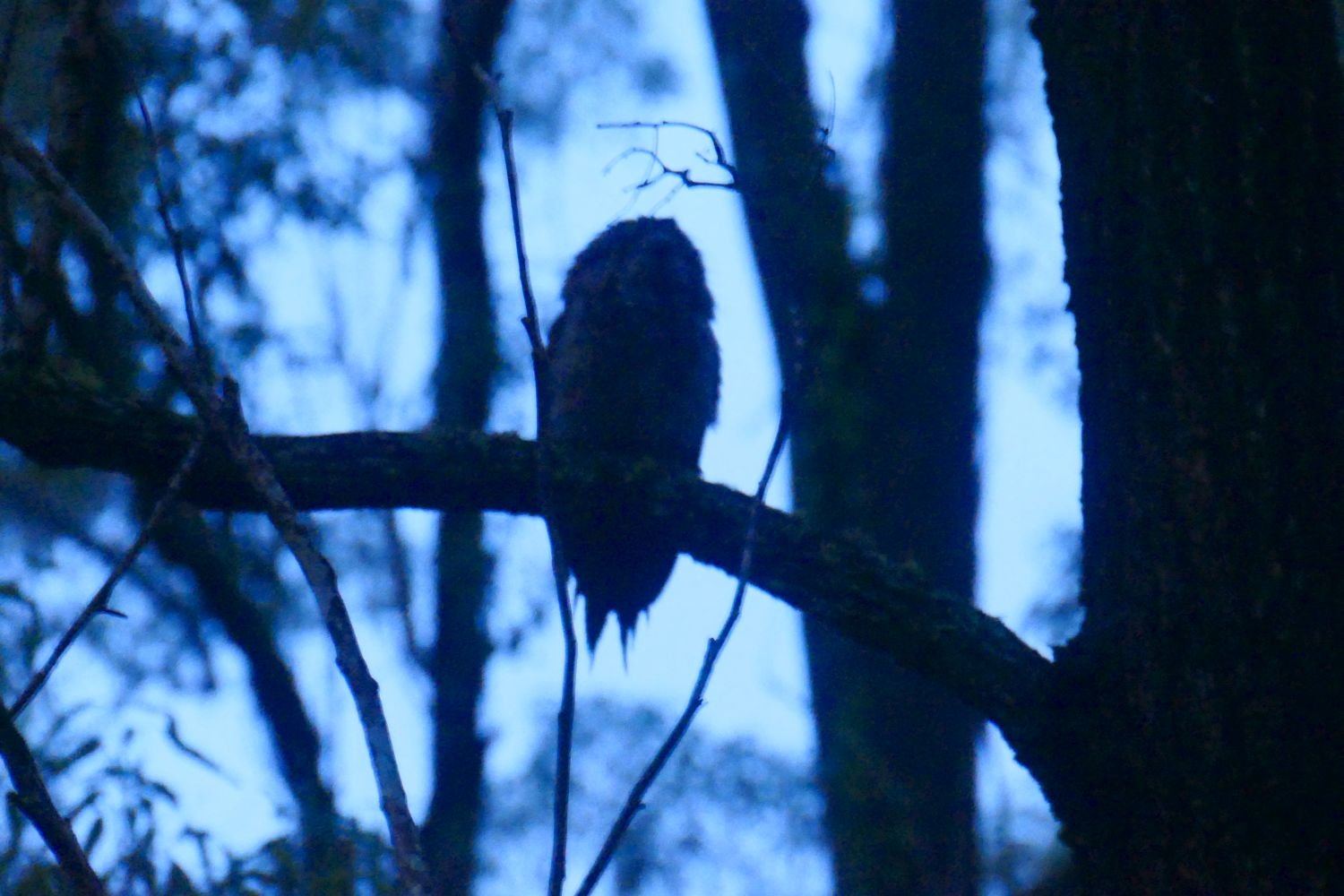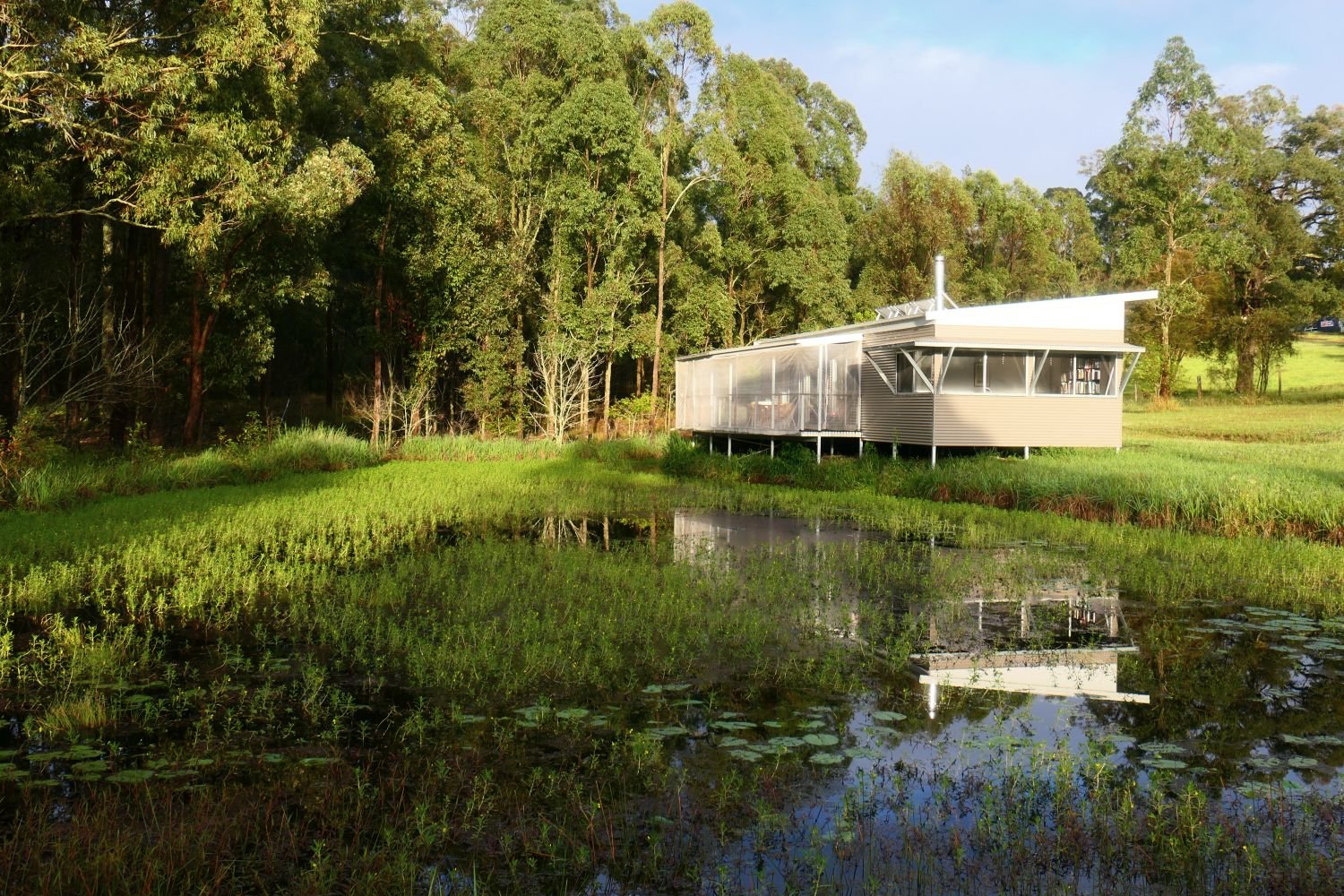29 October, VIRUS 2020
‘We don’t have time to lose’: plans for coral ark to help save the world’s reefs. The Biobank is an ambitious scheme to house 800 corals in a purpose-built facility in Port Douglas. The Guardian
Politicians fail to face facts on environment: While UK, Canada and New Zealand sign the Pledge For Nature, Australia has cut university funding and backed bushfire ‘anti-science’. Coffs Coast Advocate

5.20 dark, what light exists blunts the world,
what‘s known in the trade as a blank canvas.
Cockerels call from surrounding farms, then airwaves
fill and song scribbles the ears. I head for a view of sunrise,
a shape leaps up and sits in a tree, just a shape preening,
an owl or Boobook. Eos is grey cheese, two birds chase
in and through a small tree ignoring me, looks exhausting.
Don’t recognise their calls, I should pay more attention. 
Thump – two Red-necked Wallabies bounce out of the trees
and across the poem’s view, such agile energy, a sense
of being alive and healthy. Three low-flying ducks follow,
vanish into mist basting the tops of the trees
White-throated Gerygones are now calling with
the Olive-backed Orioles. I circumnavigate the lake
the surface shimmers with unseen life, Tiger Moths
tremble around my legs, feet are wet.


Sun sneaks out above cloud covering the mountain
an Ironbark furrows blood, the studio looks cool.
Working in the garden, collecting bucketloads of Senna seeds
Wyn shows me the wren’s nest . . . sitting and waiting,
camera to hand, hoping to catch a male, waiting and happy to,
an insect inspects real estate, a female Bowerbird flies
into the Mulberry, then a male. I approach and a Channel-bill
Cuckoo (largest cuckoo in the world) growls at me,
a Figbird flies into the green with red spots.

Kit is planting a tree a day, two today, one in a new
palm garden (patch) he has just made, another,
Escalllonia by the fenceline, the beginning of a hedge
in the orchard behind a youthful Kalamata Olive,
a lemon and couple of Mandarins, including one
of my favourites Afourer. The soil look good
he wields the mattock with practiced fitness.
Next, I help Kit by shovelling compost into a wheelbarrow.
He wheels it to the pool closest the house and dumps two
loads by the edge then sprinkle spumplin seeds.
I said I wish I had my camera for the sowing
but use it it on a rainbow .


Nearly a full moon, Mars tagging, Jupiter and Saturn
tangled in the canopy in the arms of a Grey Gum
After games, pool on a snooker table, shuffleboard and Shove Ha’penny
(not played for forty years, back at Saltford Village on the Avon),
we discuss the future, Kit is the publisher of Flying Islands Press
as well as an indefatigable blogger, poet and artist.
Frogs deafen the night, most Australian mammals and rodents love,
a mystery to me. My love is the early morning, fresh, cool, solitary.
~
After much travelling and too many horrendous tribulations Candide and his companions settle on a small farm (in Turkey where I wanted to live in my early twenties). They come upon a garden which Pangloss (Candide’s teacher) points out is not unlike the Garden of Eden. They find an old man (‘The Turk’) sitting quietly under a tree. He avoids philosophy, politics and other people’s business, focused on cultivating his vegetables through hard, simple labour. Candide realised at the very end that, ‘We must cultivate our garden.’ Voltaire’s Candide (1759)
Increasingly disturbed by the environmental destruction caused by rapid industrial growth, John Ruskin decided action was needed, not just ideas. Ruskin in the latter stages of his life was focused on honest labour on the land. In the first issues of Fors Clavigera, monthly letters to workers (1871), Ruskin promoted the idea of a ‘National Store’ of food, clothing, books and art, to promote change.
This became the ‘National Company’ which evolved into the Guild of St George. Agricultural labour was at its heart. In 1877, Ruskin bought 13 acres near Sheffield, to rent out to a small group of industrial workers keen to establish an agrarian commune, which would make tools, clothes and furniture, as well as producing food. It became known as St George’s Farm. George Baker, a Quaker and Mayor of Birmingham offered Ruskin land in the Wyre Forest. Ruskin described it as set ‘in midst of a sweet space of English hill and dale and orchard, yet unhurt by hand of man.’ He decided to leave the forest in its ancient state though, in fact, by the 17th C, almost all of the forest was coppiced for iron smelting. However, a few years later some was cleared and smallholdings developed.
One of the first residents was William Buchan Graham:
‘For eight years I worked on the Guild’s land here, at Bewdley, situated in the heart of Wyre Forest – oak mainly, the property 20 acres in extent, 5 of which had been cleared in a slovenly fashion when I came; work redone by me and planting the patch with fruit trees. Thereafter I cleared 21⁄2 acres more; made a road to the land; built some rough sheds and cots for pigs and appurtenances; grew crops of black oats and potatoes; tried growing beans and strawberries, by and by finding effort in any direction beset with insuperable difficulty.’ He visited Ruskin at Brantwood, in the Lake District to try get support and resolve his issues, but left the land and the Guild a bitter man. [1]
[1] Neil Sinden, ‘Ruskin Land: The Evolving Story, A perspective from 2017’, https://www.guildofstgeorge.org.uk/projects-places/ruskin-land-in-the-wyre-forest/ruskin-land-the-evolving-story-by-neil-sinden



